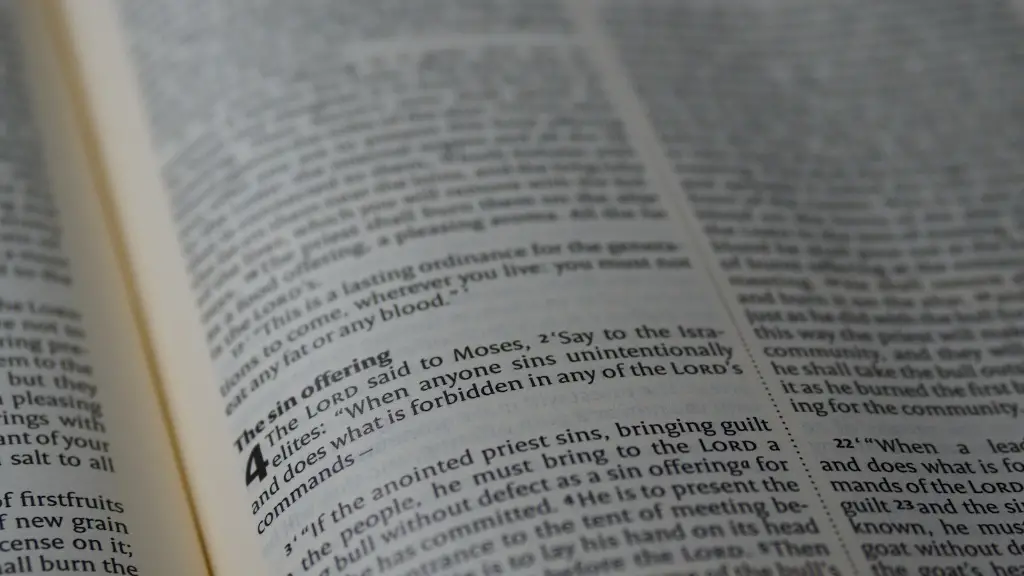Background Of Herod
Herod was the notorious King of Judea who reigned during the birth of Jesus Christ. He was king of Judea and other regions of Palestine, Lebanon and Syria. The Bible mainly mentions him as ‘Herod the Great’ and some Bible scholars also refer to him as Herod I or Herod the Edomite. His birthplace and origin remain a mystery, although some believe he was from Greece or from Edom, the area of modern-day Jordan.
Herod began his rule as a vassal of the Roman Empire in 40 BCE and was officially recognised as ruler of Judea in 37 BCE. Through political and military power, he was able to enlarge his control to other regions of the Holy Land including Samaria, Galilee, Iturea, as well as Lebanon, Syria and some parts of Idumaea.
The Impact Of Herod On Roman Rule
Herod was known to be an ally to the Romans, and his loyalty led to similarities between the Roman Empire and Herod’s monarchy. The increased Roman influence in the region helped Herod by providing material support, financially and militarily. In return, Herod helped the Roman Empire by expanding its power.
Herod understood the importance of infrastructure and as such, he built many roads and bridges, and established some important ports such as Caesarea Maritima for maritime trade. He also built several shrines and temples dedicated to the Roman Emperor.
Herod’s Administration
Herod’s administration had strong connections to the Roman Empire. He installed several Roman governors throughout his kingdom, which in turn promoted Latin culture, spread Roman laws and taxes throughout the region, and also ensured loyalty to the Empire.
During his reign, Herod had great powers such as the ability to issue decrees and monopoly over the military and judiciary—powers which later helped him establish his autonomy in 40 BC.
The Achievements Of Herod
Herod is known to have achieved some great accomplishments in his reign, both religiously and culturally. He built a magnificent Temple in Jerusalem, the Second Temple, which was later destroyed in 70 AD by the Romans.
In addition to the Temple, Herod also built fortresses in important religious and economic centres of his kingdom. Some of these fortresses still stand today and are known for their beauty and grandeur, such as Masada and Herodium.
Herod is also known for his monumental building projects, such as his palaces in Jericho and in Jerusalem, as well as the harbour at Caesarea Maritima.
The Political Turmoil Of Herod
Herod’s reign was marred by political chaos and frequent rebellions. He was accused of murdering several people, in particular members of his own Jewish family. He was also suspected of killing three of his sons in an attempt to maintain control over his kingdom.
This political turmoil also led to several wars and invasions of Judea by neighbouring states such as the Nabateans, while the country was still being ruled by Herod. This caused much suffering to the Jewish people, leading to uprisings, massacres and the eventual fall of Herod’s monarchy.
Herod’s Contribution To The Bible
Herod played a prominent role in the Bible, most famously in the Gospel of Matthew. According to the Bible, his reign began with an order to massacre all children aged two and below in Bethlehem in order to prevent the rise of a new Jewish leader. This has come to be known as the Massacre of the Innocents.
In the Gospel of Matthew, Herod, in order to find Jesus, asks the wise men from the east to locate the child and bring him a report of their findings. After the wise men return to their own country by another route, the angel of the Lord warns Joseph about Herod’s plan and the couple relocate to Egypt.
The Aftermath Of Herod’s Death
Herod died in 4 BC, after a long and laborious illness. After his death, his kingdom was divided into three parts, with his eldest son Archelaus being appointed ruler of Judea, Samaria and Idumea. Meanwhile, his two other sons, Philip and Antipas, were given the northern part of the kingdom (Galilee, Gaulanitis and Iturea) and the eastern part of the kingdom (Batanea, Trachonitis and Auranitis), respectively.
The two sons of Herod, however, were not accepted by the Jewish people, who regarded them as tyrants and oppressors—people not unlike Herod himself. In response, the people appealed to the Roman Emperor Augustus, who eventually removed the sons from their kingdom in 6 AD and placed Judea and its surrounding provinces back under Roman control.
Herod’s Legacy
Although despised for his tyrannical rule and oppressive regime, Herod is remembered in the Bible and in history for his immense work in engineering civil and religious projects throughout the region. Many sites and ruins created by Herod still stand in the Middle East today, including Masada, Herodium, Jericho and the harbour of Caesarea Maritima.
Herod also left an impact in more ways than one—through his immense wealth, he reviving the local economy of the region and creating a richer culture for his people. He was also driven by the ideal of creating an ideal kingdom for himself and his people and for keeping good relations with the Roman Empire.
The Reactions Of Others To Herod
Herod is known for being fiercely ambitious and for having an egocentric personality. He is often regarded as an evil figure who caused distress and pain in his reign, and is seen as a symbol of tyranny and oppression.
Despite his tyrannical actions, Herod was implemented and respected by some in the Judean political and religious leadership. It’s known that some Jewish religious leaders complied with Herod’s rule and even signed political documents that showed allegiance to him.
Herod’s Final Years
Herod’s power began to weaken over the years and he was eventually put on trial and sentenced to death. During this period, Herod grew extremely paranoid and charged many with treason. The most famous victim of his paranoia was John the Baptist, who Herod had arrested and executed on suspicion of insurrection.
In his last moments, Herod stated that he wanted to prove he was a great ruler and asked the people to intercede for him with the Roman Emperor Tiberius, in order to get a reprieve from his death sentence. However, his request was denied, and Herod died in 4 BC.
The Myths Forged Around Herod
Herod has been a source of many myths and rumours over the centuries and his life has become the subject of many stories and legends. It is said that in his paranoia towards the end of his life, he even locked up his own mother-in-law in prison, where she later died.
Another myth is that Herod had the master engineer and constructor, Phidias, imprisoned on a false charge of stealing the gold coins that were used to build the Temple in Jerusalem, which was dedicated to Herod’s name. It is said that Phidias died of a broken heart in prison.
The Social Connotations Of Herod’s Reign
Herod’s reign had a far-reaching impact on the social and political life of the Middle East. His ruthless actions were a cause of distress and suffering for many and a destabilization of the region. His rule is often associated with a time of great suffering for the Jewish people, who were living under the oppressive rule of a foreign king.
The Jewish people’s resistance to Herod’s rule had a strong impact on the social and religious life of the region. A resistance movement was formed which sought to free the people from oppression and lead them to a more dignified and independent life. This served as a source of inspiration for many and is still seen today as an example of resilience and strength in the face of adversity.



